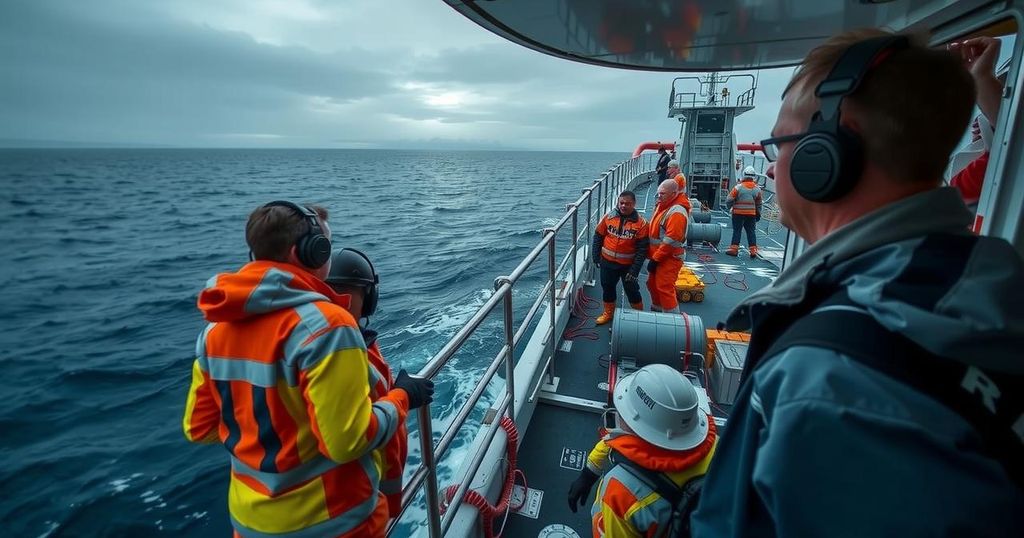A Durham scientist is aboard the Chikyu drilling ship, involved in the JTRACK project, which studies the Tohoku earthquake’s causes. The team aims to learn from the geological activity at the Japan Trench, having previously established that both shallow and deep fault areas contributed to the quake’s unprecedented displacement.
A researcher from Durham, Rebecca Robertson, is part of an international team currently engaged in a significant drilling operation off the eastern coast of Japan. The endeavor aims to deepen understanding of the 2011 Tohoku earthquake, a catastrophic event that not only resulted in severe infrastructural damage across Japan but also initiated the Fukushima Daiichi nuclear disaster. The ongoing project, known as the Tracking Tsunamigenic Slip Across the Japan Trench (JTRACK), builds upon previous studies conducted in the area, focusing on geological processes underlying one of the largest earthquakes recorded in modern times.
The 2011 Tohoku earthquake and its resultant tsunami were unprecedented in scale, claiming approximately 18,500 lives and displacing over 160,000 individuals. Initial investigations, including those from the Japan Trench Fast Drilling Project in 2013, aimed to uncover the factors contributing to this extraordinary seismic occurrence. The geological context of subduction zones, which typically are known to host substantial earthquakes, necessitates further exploration especially concerning the shallow fault segments that, contrary to earlier beliefs, also exhibited substantial activity during the Tohoku event.
In conclusion, the collaborative efforts of the JTRACK team, which includes international experts and representatives from Durham University, are poised to yield valuable insights into seismic activity in subduction zones. The findings from this project are expected to enhance our understanding of such catastrophic events and their implications for safety and preparedness in earthquake-prone regions worldwide.
Original Source: www.durham.ac.uk






